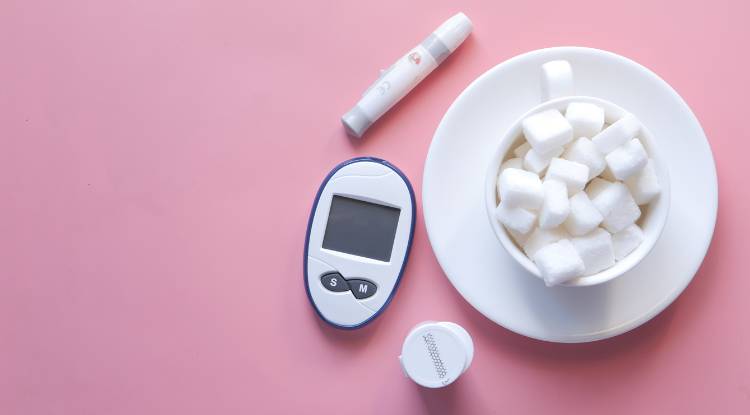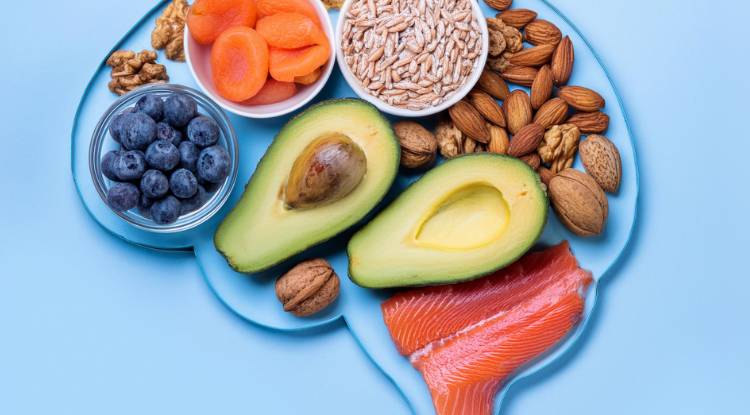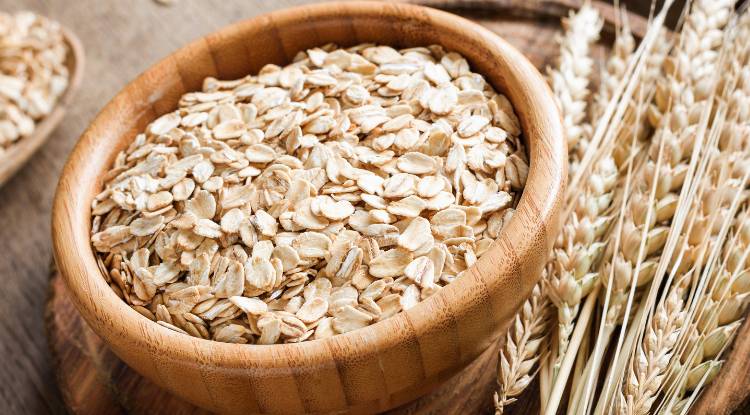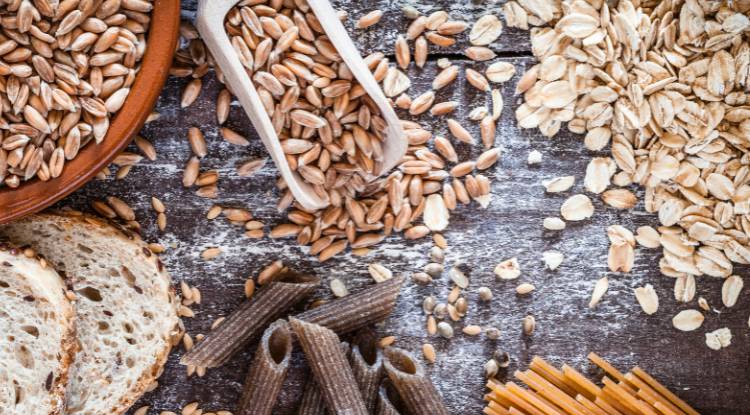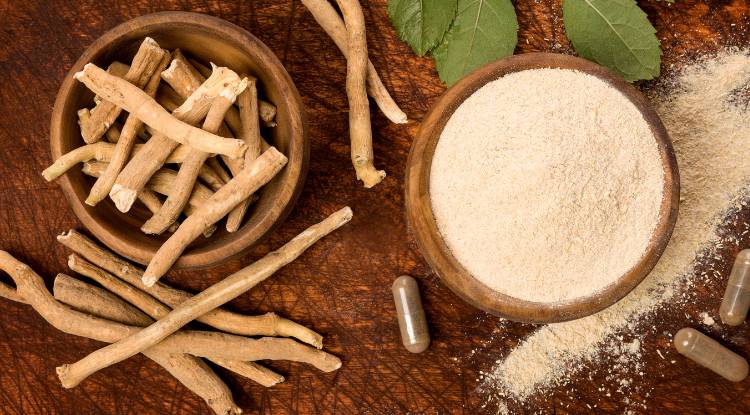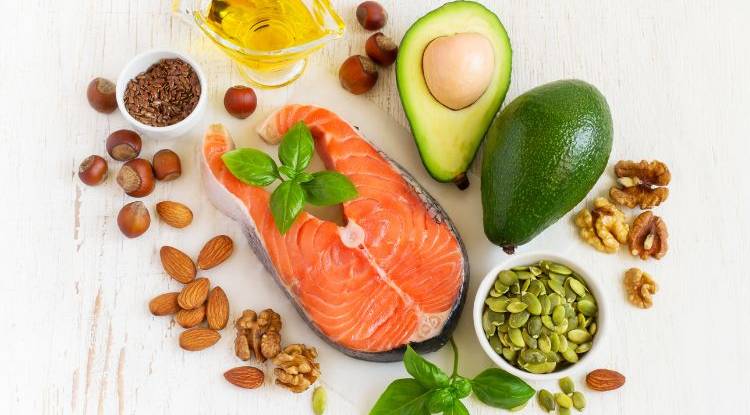The Role of Nutrition and Lifestyle in Polycystic Ovarian Syndrome (PCOS)

Irregular periods, difficulty conceiving, weight fluctuations, fatigue, acne, excess hair growth in unwanted places, thinning hair where you’d like more, sugar cravings, and more… The list of possible symptoms with Polycystic Ovary Syndrome (PCOS) can feel endless.
PCOS is one of the most common hormonal conditions, affecting around 5–10% of women worldwide, particularly during the reproductive years.
It can influence hormonal balance, metabolism, and fertility in profound ways. Each person’s experience of PCOS is unique and the type, number, and severity of symptoms vary greatly. The encouraging news is that with the right combination of nutrition, lifestyle strategies, and medical support, many women can reduce symptoms and greatly improve their quality of life.
What is PCOS?
PCOS is a condition that affects the ovaries, which are responsible for producing eggs and the hormones estrogen and progesterone. Women with PCOS often have an imbalance in their sex hormones, including elevated levels of androgens (male hormones like testosterone), which can disrupt the menstrual cycle and lead to symptoms like irregular periods, acne, hirsutism (excessive hair growth), and thinning hair.
In addition to hormonal imbalances, around 80% of women with PCOS are often insulin resistant, meaning their bodies have difficulty processing insulin, a hormone that regulates blood sugar. This can lead to higher levels of insulin in the blood, an increased risk of developing type 2 diabetes, and further hormonal imbalances. Additionally, women with PCOS may have polycystic ovaries, where multiple small cysts form on the ovaries, though not all women with PCOS have this feature.
The Role of Nutrition in Managing PCOS
Nutrition plays a pivotal role in managing PCOS by supporting hormone regulation, improving insulin sensitivity, and reducing the risk of disease. While there is no one-size-fits-all approach to PCOS nutrition, several dietary strategies can significantly improve symptoms and reduce the risk of associated conditions such as type 2 diabetes, cardiovascular disease, and metabolic syndrome.
1. Balancing Blood Sugar Levels with Low Glycemic Index Foods
One of the key concerns for many women with PCOS is insulin resistance, which is closely connected to how the body manages blood sugar. When blood sugar levels run high, the body produces more insulin to try and move sugar into the cells. But with insulin resistance, the cells don’t respond properly, leaving them under-fuelled and often contributing to fatigue. At the same time, higher insulin levels can drive up testosterone production, which plays a major role in symptoms like irregular periods.
A diet rich in low glycemic index (GI) foods can help regulate blood sugar levels and improve insulin sensitivity. The glycemic index is a measure of how quickly a food raises blood sugar levels. Foods with a low GI cause a gradual increase in blood sugar, providing a steady source of energy and preventing insulin spikes.
Low GI Foods:
Whole grains (brown rice, quinoa, oats)
Non-starchy vegetables (broccoli, spinach, kale)
Legumes (lentils, chickpeas, black beans)
Fruits (berries, apples, pears)
Lean proteins (chicken, turkey, tofu, fish)
On the other hand, high GI foods, such as refined carbohydrates, sugary snacks, and processed foods, can lead to rapid spikes in blood sugar and should be consumed mindfully. By choosing low GI foods or dressing up your naked carbohydrates with protein, fibre and healthy fats, women with PCOS can better manage insulin resistance and energy levels.
2. Incorporating Healthy Fats
Healthy fats play an important role in hormone production and overall health. Omega-3 fatty acids, in particular, have anti-inflammatory properties that may help reduce symptoms of PCOS, such as acne and excess hair growth. Omega-3s can also improve insulin sensitivity and support heart health, which is especially important for women with PCOS who may be at an increased risk of cardiovascular disease.
Sources of Omega-3 Fatty Acids:
Fatty fish (salmon, sardines, mackerel)
Flaxseeds and chia seeds
Walnuts and almonds
In addition to omega-3s, it's important to include other healthy fats in the diet, such as monounsaturated fats found in olive oil, avocados, nuts, and seeds. These fats help support hormone production and can provide a feeling of fullness, helping to prevent overeating which can be a common frustration with PCOS.
3. Protein-Rich Foods for Hormonal Balance
Protein is essential for stabilising blood sugar levels, supporting muscle mass, and promoting satiety. Consuming an adequate amount of protein can also help balance hormones, especially insulin and testosterone, which are often imbalanced in women with PCOS.
Sources of Protein:
Lean meats (chicken, turkey, beef)
Fish and seafood
Eggs and egg whites
Plant-based proteins (tofu, tempeh, lentils, chickpeas)
Greek yogurt and cottage cheese
Including a source of protein in every meal helps maintain stable blood sugar levels, reduces cravings, and improves overall satiety.
4. Focusing on Anti-Inflammatory Foods
Chronic inflammation is a common issue for women with PCOS, and research suggests that a diet high in anti-inflammatory foods can help alleviate symptoms. Anti-inflammatory foods include fruits and vegetables, whole grains, legumes, healthy fats, herbs and spices.
Anti-Inflammatory Foods:
Fruits (berries, cherries, oranges)
Vegetables (spinach, kale, bell peppers)
Fatty fish (salmon, sardines)
Nuts and seeds (flaxseeds, chia seeds, almonds)
Turmeric and ginger (known for their potent anti-inflammatory properties)
By incorporating these foods into your diet, you can reduce inflammation, support hormone balance, and improve overall health.
5. Improve Gut Health
Gut dysbiosis is an imbalance in the gut microbiome which has been increasingly studied in relation to PCOS. Supporting gut health may help reduce inflammation and improve metabolic and hormonal balance.
Introducing beneficial bacteria through probiotic sources such as supplements, or fermented foods like Greek yoghurt with live cultures, kefir, sauerkraut, kimchi, and miso, can help populate the gut with microbes that carry out important health-promoting functions.
Alongside this, eating a wide range of plant foods provides the fuel these microbes need. Prebiotic foods like onions, garlic, artichokes, unripe bananas, and inulin, together with a colourful variety of fruits, vegetables, pulses, legumes, nuts, seeds, herbs, and spices, can nourish beneficial bacteria, helping them thrive, grow, and multiply.
6. Vitamins and Minerals for PCOS
Several vitamins and minerals are essential for women with PCOS. These nutrients help support hormonal balance, insulin sensitivity, and overall health.
Myo-Inositol: Inositol is a naturally occurring compound, often grouped within the B-vitamin family. Research suggests it may improve the body’s response to insulin by enhancing insulin sensitivity. This can help lower androgen (male hormone) levels, regulate menstrual cycles, and support ovarian function.
Vitamin D: Many women with PCOS have low levels of vitamin D. This nutrient plays a crucial role in insulin regulation, fertility, and immune health. Deficiency has been linked to worsened insulin resistance and a higher risk of developing type 2 diabetes.
B Vitamins: B vitamins, particularly B6, B12, and folate, support hormonal balance, energy metabolism, and red blood cell production. Vitamin B6 may also help ease PMS-like symptoms, which are often more pronounced in women with PCOS.
Magnesium: Magnesium contributes to insulin sensitivity, better blood sugar control, nervous system support and better sleep quality. It can be found in foods such as leafy greens, nuts, seeds, legumes, and dark chocolate.
Chromium: Chromium supports insulin sensitivity and may help stabilise blood sugar, which in turn can reduce sugar cravings.
Incorporating a nutrient-dense, well-balanced diet rich in these vitamins and minerals, alongside thoughtful supplementation can greatly improve PCOS symptoms and overall well-being.
Lifestyle Changes for Managing PCOS
In addition to nutrition, lifestyle factors such as exercise, stress management, and sleep play an important role in managing PCOS. By making small but impactful changes to daily habits, women with PCOS can improve their symptoms and reduce the risk of developing related health conditions.
1. Regular Exercise
Exercise is one of the most effective ways to improve insulin sensitivity, support weight management, and reduce stress levels. Both aerobic exercises (such as walking, cycling, or swimming) and strength training (such as weightlifting or bodyweight exercises) are beneficial for women with PCOS.
Benefits of Exercise for PCOS:
Improves insulin sensitivity and blood sugar control.
Helps regulate menstrual cycles and support fertility.
Reduces abdominal fat.
Reduces stress and anxiety, which can exacerbate hormonal imbalances.
A combination of cardio and strength training exercises is ideal, with at least 30 minutes of moderate-intensity exercise most days of the week.
2. Managing Stress
Chronic stress can worsen PCOS symptoms by increasing cortisol levels, which can further disrupt hormonal balance. Practicing stress management techniques such as meditation, deep breathing exercises, yoga, and mindfulness can help lower stress levels and support overall well-being.
Stress-Reducing Activities:
Meditation and mindfulness
Yoga or Pilates
Breathing exercises
Spending time outdoors
Hobbies and activities that bring joy
Reducing stress not only improves mental and emotional health but also helps maintain hormonal balance and supports other lifestyle changes, such as better sleep and regular exercise.
3. Prioritising Sleep
Poor sleep quality and sleep deprivation are common issues for women with PCOS. Lack of sleep can negatively impact insulin sensitivity, weight management, and hormonal regulation. Ensuring 7-9 hours of quality sleep each night is crucial for maintaining overall health.
Tips for Improving Sleep:
Maintain a consistent sleep schedule.
Create a calming bedtime routine (avoid electronics before bed).
Make your sleep environment dark, cool, and quiet.
Limit caffeine and alcohol intake in the evening.
Quality sleep plays a vital role in reducing stress, improving insulin sensitivity, and supporting fertility, making it an important component of managing PCOS.
Conclusion
Managing PCOS requires a holistic approach that includes proper nutrition, regular exercise, stress management, and healthy sleep habits. By focusing on a nutrient-dense, anti-inflammatory diet that supports insulin sensitivity, hormone balance, and gut health, women with PCOS can significantly reduce symptoms and improve their quality of life. Regular physical activity, stress-reducing techniques, and prioritising sleep further enhance overall well-being and help combat the metabolic and hormonal challenges associated with PCOS.
While lifestyle changes alone can go a long way in managing PCOS, it’s important to consult with a healthcare provider for personalised treatment options, including medications or supplements, that may further support hormonal balance and fertility. With the right combination of nutrition, lifestyle changes, and medical care, women with PCOS can lead healthy, fulfilling lives.
Sources:
https://www.mdpi.com/2077-0383/12/4/1454
https://www.mdpi.com/2072-6643/17/2/310
https://www.jsams.org/article/S1440-2440(24)00208-1/fulltext
https://journals.lww.com/md-journal/fulltext/2024/06210/polycystic_ovary_syndrome_and_its_multidimensional.16.aspx

 Funmi Akinola (Msc, Anutr)
Funmi Akinola (Msc, Anutr) 



























